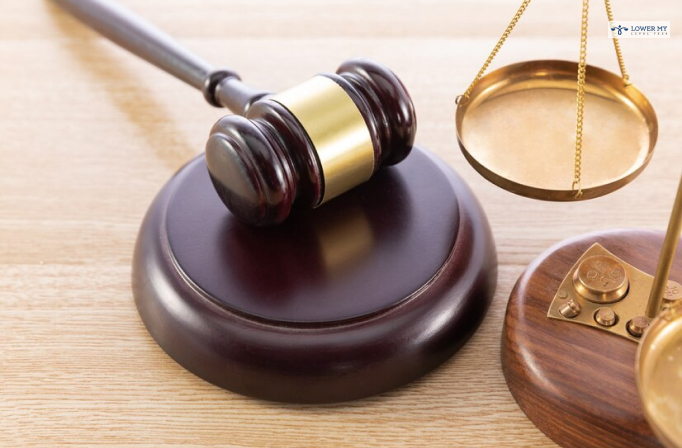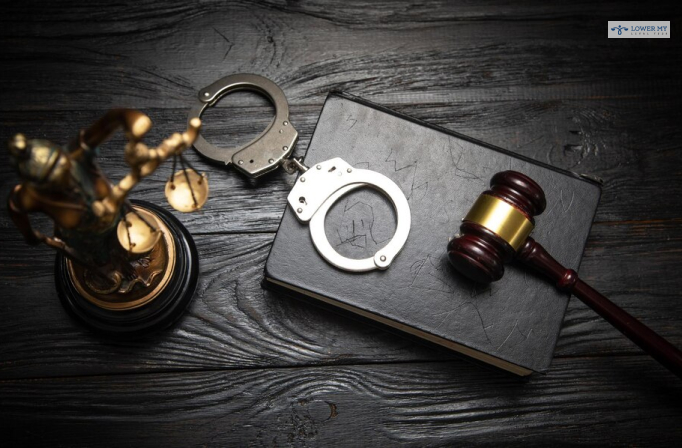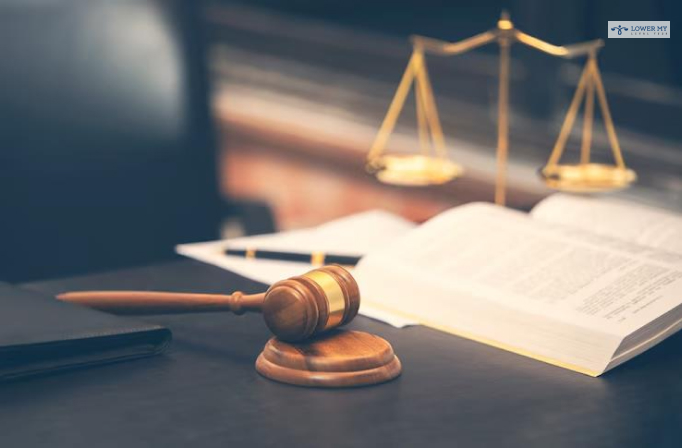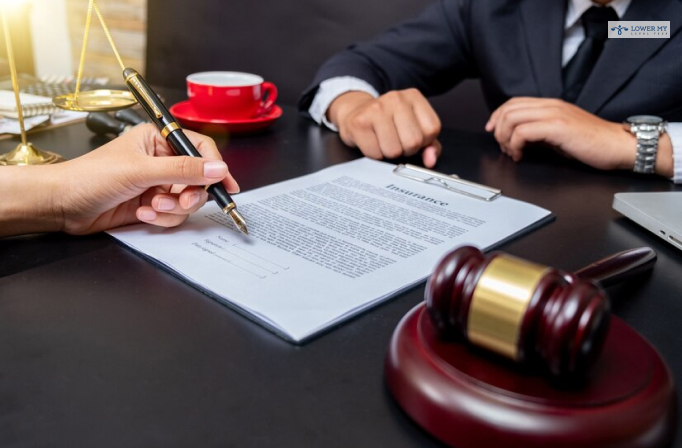Probation revocation is a critical issue in criminal law. When someone is on probation, they agree to follow the court’s regulations rather than going to jail. However, if they violate these regulations, their probation gets terminated, and they face severe penalties. This blog will look at probation revocation, how it works, and what happens when someone’s probation gets revoked. Understanding probation revocation is critical for everyone involved in the criminal justice system. Let’s go in and learn more about this crucial legal procedure.
Definition and Overview of Probation Revocation

Probation revocation is an important part of criminal law that includes terminating a person’s probationary status owing to a breach of the terms and conditions imposed by the court. When a person is convicted of a crime, the court orders probation as an alternative to jail or as part of a punishment. Probation permits the individual to live in the community under court supervision, subject to specified terms and obligations.
The terms of probation may differ based on the nature of the offense, the individual’s criminal history, and other considerations the court considers. Typical probation terms may include frequent check-ins with a probation officer, attendance at counseling or treatment programs, drug testing, community work, and compliance with curfews or travel.
Probation aims to provide criminals with a chance at rehabilitation while guaranteeing public safety and legal compliance.
However, probationers are expected to follow the conditions of their probation and any court orders. Failure to do so may result in probation revocation when the court terminates the probationary status and imposes further fines or consequences.
Probation revocation processes usually include a hearing before a judge, during which evidence of the claimed probation breach is presented, and the probationer is allowed to defend the charges. The court then decides if a violation occurred and what the punishment should be. Depending on the circumstances, the court may revoke the probation and force the defendant to fulfill the original sentence, impose new restrictions, prolong the probationary period, or order other punishments.
Overall, probation revocation is a means for holding probationers accountable for their conduct, encouraging compliance with court-ordered monitoring, and guaranteeing probation’s efficacy as a rehabilitative measure in the criminal justice system. Understanding the definition and summary of probation revocation is critical for both probationers and legal professionals involved in the
Importance of Understanding Probation Revocation

Understanding probation revocation is critical for various reasons, which underline its importance within the criminal justice system:
Compliance with Court Orders
Individuals on probation must comprehend the terms and restrictions imposed by the court. Knowing the repercussions of breaching these restrictions might inspire probationers to follow the terms of their probation and avoid activities that could result in revocation.
Risk Awareness
Understanding probation revocation enables probationers to comprehend the potential implications of their behavior. Individuals aware of the actions or conditions that may result in revocation can make educated judgments and take proactive measures to prevent breaching their probation.
Legal Rights and Responsibilities

Probationers have legal rights and safeguards during revocation procedures, such as the right to a hearing, to submit evidence, and to legal counsel. Understanding these rights enables probationers to fight for themselves and guarantee fairness in court.
Prevention of Recidivism
Education regarding probation revocation can reduce recidivism rates by encouraging compliance with probation requirements and positive behavior change. Probationers who understand the repercussions of probation breaches may be more motivated to follow the terms of their supervision and avoid criminal conduct.
Effective Legal Representation
Legal practitioners must understand probation revocation to represent clients facing revocation procedures well. Lawyers who understand the revocation process can better fight for their clients, contest claims of probation breaches, and achieve positive outcomes in court.
Public Safety
Enforcing probation restrictions through effective revocation processes improves public safety by keeping probationers accountable for their conduct and lowering the risk of damage to the community. The criminal justice system can assist in preventing future illegal activity and encourage rehabilitation by dealing with probation violations promptly and efficiently.
Purpose of Probation
The purpose of probation is diverse, supporting various goals within the criminal justice system. Here are the main purposes of probation:
Rehabilitation
One of the key goals of probation is to help criminals reintegrate into society while also addressing the root reasons for their criminal conduct. Probation permits people to obtain counseling, therapy, and support services targeted to their specific requirements, supporting personal development and positive transformation.
Punishment
Probation is an alternative to jail or a component of a sentence, enabling individuals to stay in the community under supervision while meeting the court’s requirements. Probation is a punishment that imposes limitations and conditions on probationers, such as curfews, community service, or reparations.
Community Protection
Probation strives to safeguard the community by monitoring and supervising those in danger of reoffending. Probation staff regularly monitor probationers’ compliance with court-ordered conditions and take fast action to resolve any concerns or breaches. Supervising probationers in the community decreases the chance of future criminal conduct and enhances public safety.
Restitution and Compensation
Probation may require probationers to make restitution to victims or reimburse society for the expenditures connected with their actions. Probation fosters accountability and addresses the repercussions of illegal activity by encouraging probationers to apologize for their acts and accept responsibility for the harm they have caused.
Individualized Justice
Probation provides for individualized sentencing and monitoring based on each case’s unique circumstances and the offender’s requirements. Probation officers analyze probationers’ risks and needs, create case plans, and provide loans, aid, and resources to help them thrive on probation. By addressing each probationer’s specific requirements and circumstances, probation promotes justice and increases the possibility of effective recovery.
Cost-Effective Alternative
Probation is a cost-effective alternative to jail since it allows people to complete their sentences in the community while getting supervision and support services. Probation reduces jail congestion, lowers public expenses, and better allocates resources within the criminal justice system.
Types of Probation

Probation can take several forms, each customized to the individual’s circumstances and the court’s requirements. Here are the most prevalent forms of probation:
Supervised Probation
Supervised probation entails regular interaction between the probationer and a probation officer who oversees compliance with the probation requirements. Probation officers undertake frequent check-ins, house visits, and drug testing to ensure probationers complete their probationary period. They also give direction, support, and monitoring.
Unsupervised Probation
Individuals can spend their probationary period without supervision. While probationers must still follow the terms of their probation, such as attending therapy or performing community service, they may not have frequent check-ins with probation officials.
Formal Probation
The court imposes formal probation as part of a criminal sentence. The court imposes requirements on probationers, and a probation officer monitors their compliance. Formal probation often entails frequent check-ins, drug testing, and compliance with court-ordered conditions.
Informal Probation
Informal probation, also known as summary or court probation, is for applied to minor offenses or first-time offenders. It usually has a shorter probationary period and fewer requirements than official probation. While probationers must still meet certain criteria, such as restitution or community work, they may not be subject to frequent supervision by a probation officer.
Shock Probation
Shock probation entails initially sentencing a defendant to jail, followed by early release on probation. Shock probation aims to give criminals a brief time in prison to prevent future criminal activity while allowing them to reintegrate into society under probation monitoring.
Split Probation
Split probation combines imprisonment and probation, in which part of the sentence is served in jail or prison after a probation period. It permits criminals to go from jail to community supervision, offering the possibility of rehabilitation and reintegration into society.
Intensive Probation Supervision
IPS requires more rigorous supervision and monitoring for high-risk or high-need probationers. Probation professionals actively monitor probationers’ actions, perform regular check-ins, and offer additional help and tools to address underlying issues contributing to criminal behavior.
Terms and Conditions of Probation

The terms and conditions of probation differ based on the nature of the offense, the individual’s criminal history, and the jurisdiction in which the probation is imposed. However, several standard requirements are frequently included in probation orders. The following are some typical probation terms and conditions:
Regular Check-Ins
Probationers must report to their probation officer regularly, which can range from weekly to monthly meetings. During these check-ins, probation officials assess the probationer’s progress, review compliance with probation requirements, and offer advice and assistance.
Abstinence from Drugs and Alcohol
Probationers must refrain from using drugs or alcohol throughout their probation. This condition frequently involves consenting to drug and alcohol testing, with consequences for positive test results.
Employment or Education
As a condition of probation, probationers are compelled to work or attend educational programs. This condition encourages stability, self-sufficiency, and constructive behavior throughout the probationary term.
Counseling or Treatment Programs
Probationers are required to attend counseling, therapy, or treatment programs to address underlying issues, including substance addiction, mental health illnesses, anger management, or domestic violence.
Community Service
Probationers must undertake a set number of hours of community service as part of their probation. Community service seeks to foster accountability, reparation, and constructive contributions to the community.
Restrictions on Travel or Residency
Probationers may travel outside a specific area or relocate with prior clearance from their probation supervisor. These limits allow probation officials to monitor and oversee probationers efficiently.
No Contact Orders
Probationers can be forbidden from contacting certain people, such as victims or co-defendants, as a condition of probation. These no-contact orders are intended to avoid further injury or dispute while ensuring the safety of those engaged in the case.
Restitution
Probationers might be forced to pay restitution to victims of their misdeeds to compensate for financial losses or damage suffered because of the crime. Restitution orders often include a payment schedule and repercussions for nonpayment.
Weapon Restrictions
Probationers might get barred from carrying firearms or other weapons during their probation period. This condition limits the possibility of violence and protects public safety.
Compliance with Laws
Probationers must follow all laws and court orders during their probation period. Any new arrests or criminal charges may lead to probation breaches and other repercussions.
The procedure for Probation Revocation

The procedure for probation revocation often requires numerous phases, as stated below:
Alleged Violation
The probation revocation procedure begins when a probation officer or law enforcement agency claims that a probationer has broken the terms and conditions of their probation. Violations may include failing drug tests, missing probation appointments, committing additional offenses, or otherwise breaching probation terms.
Notice of Violation
The probationer issues a notice of probation violation, which details the charges and reasons for revocation. The notification may contain information regarding the infraction, the repercussions of revocation, and the right to a hearing.
Probation Revocation Hearing
The probationer has the right to a hearing before a judge to argue the probation violation charges and provide evidence in their defense. The hearing takes place before the same judge who imposed the probation or a different judge designated to handle probation revocation matters.
Presentation of Evidence
During the probation revocation hearing, the probation officer and the probationer can present evidence, call witnesses, and argue about the claimed violation. The probation officer may provide evidence such as probation records, witness testimony, or drug test results, whereas the probationer may offer evidence to disprove the claims or minimize the penalties.
Burden of Proof
The burden of proof in probation revocation hearings is usually lower than in criminal prosecutions. The prosecution must prove by a preponderance of the evidence that the probationer breached the probation terms, which means that a violation is more likely than not to have occurred.
Decision of the Judge
After reviewing the facts and arguments given during the hearing, the judge will make a judgment on probation revocation. If the court determines that there has been a violation, the probation can get revoked and fines or punishments imposed, such as jail, probation extension, or probation condition modification.
Appeal Process
If the probationer disagrees with the judge’s judgment, they may be able to appeal the revocation order to a higher court. Typically, the appeal process consists of submitting a notice of appeal, preparing appellate papers, and presenting arguments before an appellate court.
Duties and Responsibilities of Attorney in Probation Revocation

The obligations and responsibilities of an attorney representing a client in probation revocation hearings are critical to ensuring the client’s rights and interests. First and foremost, the attorney must offer enthusiastic advocacy and diligent counsel throughout the revocation process. This includes evaluating the charges of probation violation, acquiring evidence, and devising a defense plan to counter the prosecution’s argument.
The attorney’s obligations also include:
- Advising the client on their legal rights and alternatives.
- Describing the potential repercussions of probation revocation.
- Navigating the legal procedure.
Furthermore, the attorney must preserve the client’s constitutional rights during the revocation hearing, which include the ability to question witnesses, present evidence, and cross-examine the probation officer.
Final Thoughts
Probation revocation is an important component of the criminal justice system, providing a means to hold probationers accountable for violating their probationary conditions. Probation revocation, which follows a structured legal procedure, seeks to balance the purposes of rehabilitation, public safety, and responsibility while protecting the rights of those involved. Understanding probation revocation is critical for probationers, legal professionals, and the general public because it promotes fairness, compliance with court orders, and effective supervision within the criminal justice system.
Read Also:






